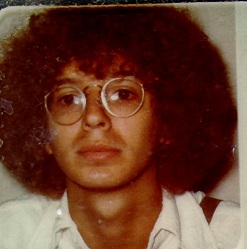Stephen Frank
Biography

Stephen P. Frank was born in Cambridge, New York––of Grandma Moses fame––and lived for many years in the internationally known resort center of Hoosick Falls.
Skipping quickly ahead, in 1978, having largely survived dangerous encounters with polyester, bad hair styles, and strange lifestyles found only in upstate New York, he received his B.A. degree in history and political science at the State University of New York, Plattsburg. For reasons still unexplained he then undertook graduate training in Russian and Soviet history at Brown University, and was awarded the Ph.D. degree in 1987 upon completion of his dissertation, affectionately known among family members as “that big paper.” While at Brown he also specialized in European social and economic history under Philip Benedict and Joan Scott, as well as the sociology of development and peasant studies with Peter Evans.
Frank began teaching Russian, Soviet and European history at Boston University in 1987, moved on to the University of California, Riverside in 1990, and came to UCLA in 1993, mainly for the cleaner air. He has taught lecture courses on all periods of Russian history, western civilization, European and world history, and seminars on a range of topics that include the social history of imperial Russia, Revolutionary Russia (1905-21), European popular culture, and crime and punishment in Europe.
Stephen has received research grants from IREX, the Social Sciences Research Council, the National Endowment for the Humanities, and the Woodrow Wilson Center’s Kennan Institute for Advanced Russian Studies. His publications include articles on rural popular culture, rural crime and justice, and representations of women and crime in Imperial Russia. He has co-edited (with Ben Eklof) The World of the Russian Peasant: Post-Emancipation Society and Culture and (with Mark Steinberg) Cultures in Flux: Lower-Class Values, Practices and Resistance in Late Imperial Russia. His book, Crime, Cultural Conflict, and Justice in Rural Russia, 1856-1914 was published in 2000 by University of California Press, and has receiving multiple glowing reviews that have nothing whatsoever to do with radiation. Frank’s current research entails a study of popular festivity, violence, and social reform in the Russian countryside from the early 19th century to the 1920s.


